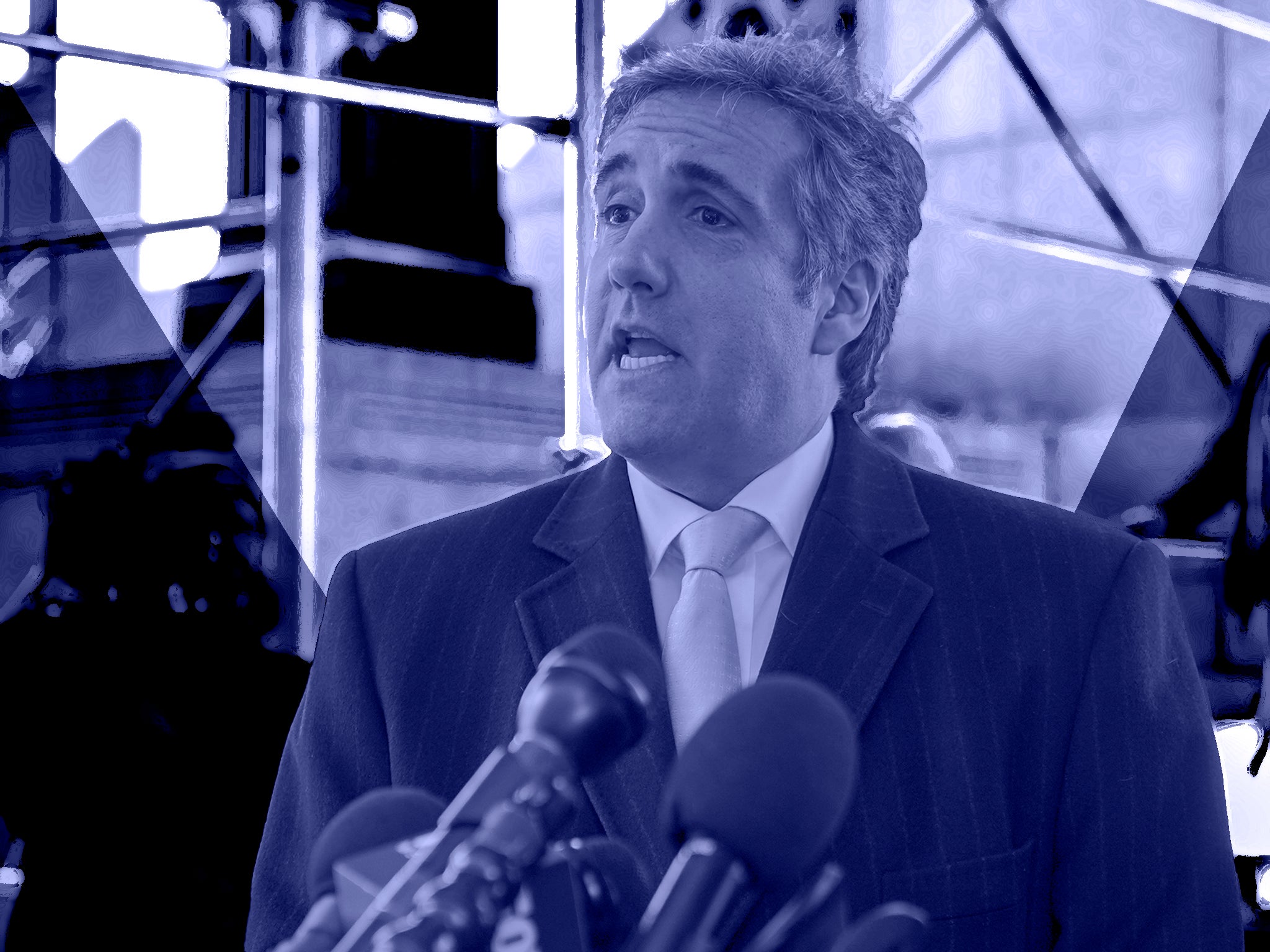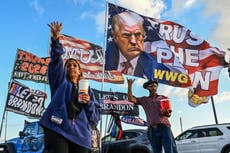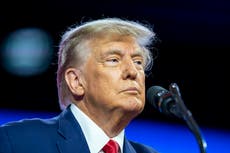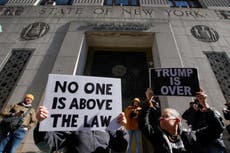The ‘fixer’: How Michael Cohen’s efforts to help Donald Trump led to charges against his ex-boss
A man who was once Donald Trump’s legal adviser may be the one responsible for sparking a historic presidential prosecution, John Bowden writes

Your support helps us to tell the story
From reproductive rights to climate change to Big Tech, The Independent is on the ground when the story is developing. Whether it's investigating the financials of Elon Musk's pro-Trump PAC or producing our latest documentary, 'The A Word', which shines a light on the American women fighting for reproductive rights, we know how important it is to parse out the facts from the messaging.
At such a critical moment in US history, we need reporters on the ground. Your donation allows us to keep sending journalists to speak to both sides of the story.
The Independent is trusted by Americans across the entire political spectrum. And unlike many other quality news outlets, we choose not to lock Americans out of our reporting and analysis with paywalls. We believe quality journalism should be available to everyone, paid for by those who can afford it.
Your support makes all the difference.Former attorney Michael Cohen was once Donald Trump’s top operative: a “fixer” who handled matters both legal and otherwise for the celebrity businessman-turned-political candidate.
But as Alvin Bragg’s Manhattan grand jury has voted to indict Mr Trump, it’s clear that Cohen’s efforts to “fix” problems for his boss have caused far more harm than good. Charges against Mr Trump were filed on Thursday 30 March. It is currently unclear what the charges are but multiple reports say that Mr Trump is facing more than 30 counts related to business fraud.
So how did we get here?
In the autumn of 2016, Cohen was still serving as an attorney and longtime colleague of the presidential hopeful he would later go on to call a racist, a con man and a fraud in sworn testimony to Congress. As part of that job, he connected with a woman named Stephanie Clifford — aka porn star Stormy Daniels — and started making a deal.
The terms of that deal were simple: Daniels would cease her efforts to shop a story of her alleged affair with Trump to journalists around the country, thereby removing a last-minute landmine for the Trump campaign already battered with the damning audio of his Access Hollywood comments about sexually harassing women, reported just weeks earlier. She’d stop talking about it to anyone, in fact, and would sign a nondisclosure agreement opening her up to arbitration if she did otherwise. In exchange? A one-time payment of $130,000.
It was the perfect plan, and to some extent it worked: Daniels signed the NDA, and in the days and weeks to come would not appear in any major news publications sharing her side of events. Fox News even killed a story on the matter, though whether that was due to Danielss’ non-cooperation or the network’s own sharp pro-Trump bent is less clear.
But just a year after his boss would be sworn in as president, the wall of secrecy crumbled. The Wall Street Journal had the entire story, including the hush money payment, and Cohen found himself unable to say, “no comment”. Days after it comes out, he admits to making the hush payment — an admission, along with financial records of the deed itself, that would later get him thrown into prison. Another leak-prone member of the Trump legal team, Rudy Giuliani, would go on to admit on national television that Trump had not only known about the payment (at some point in time), but had reimbursed Cohen for his service.
The question then became whether Trump knew about the payment. Two options were possible: Number one, Trump both knew of his attorney’s actions as they occurred and implicitly approved of them; or number two, Trump only found out about the hush payment afterwards but still apparently approved of it and went through with reimbursing Cohen for it anyway.
Cohen’s payment to Daniels was considered to be both unreported and excessive in its amount and nature; should prosecutors be able to prove that the contributions were made at the former president’s direction, it could be an open-and-shut case for a jury.
Spurned by his former boss, within a year of the Daniels matter going public Cohen was in front of any camera that would have him warning about the dishonesty and fraud that he now says was always part of his former boss’s operation. In testimony to the House Oversight Committee in February of 2019, he implicated the Trump Organization in a scheme to inflate or deflate the value of certain assets for the purposes of fraudulently obtaining better tax rates or more favourable loan terms; those claims are now at the core of New York state Attorney General Letitia James’s lawsuit seeking to bar the company from doing business in the Empire State.
But even so, his flip-flop on the issue of support for the former president — not to mention his stint in prison for lying to Congress — are issues challenging his credibility, and the strength of his testimony to investigators. A former legal adviser to the president said as much on Monday when he testified to the grand jury in Manhattan and trashed Cohen’s reliability as a witness.
Disbarred in New York and unlikely to pick up a cable news gig like other ex-Trump campaign and administration officials, it’s unclear what futures remain open to the man who was once no 2 to one of the most powerful men in America.




Join our commenting forum
Join thought-provoking conversations, follow other Independent readers and see their replies
Comments